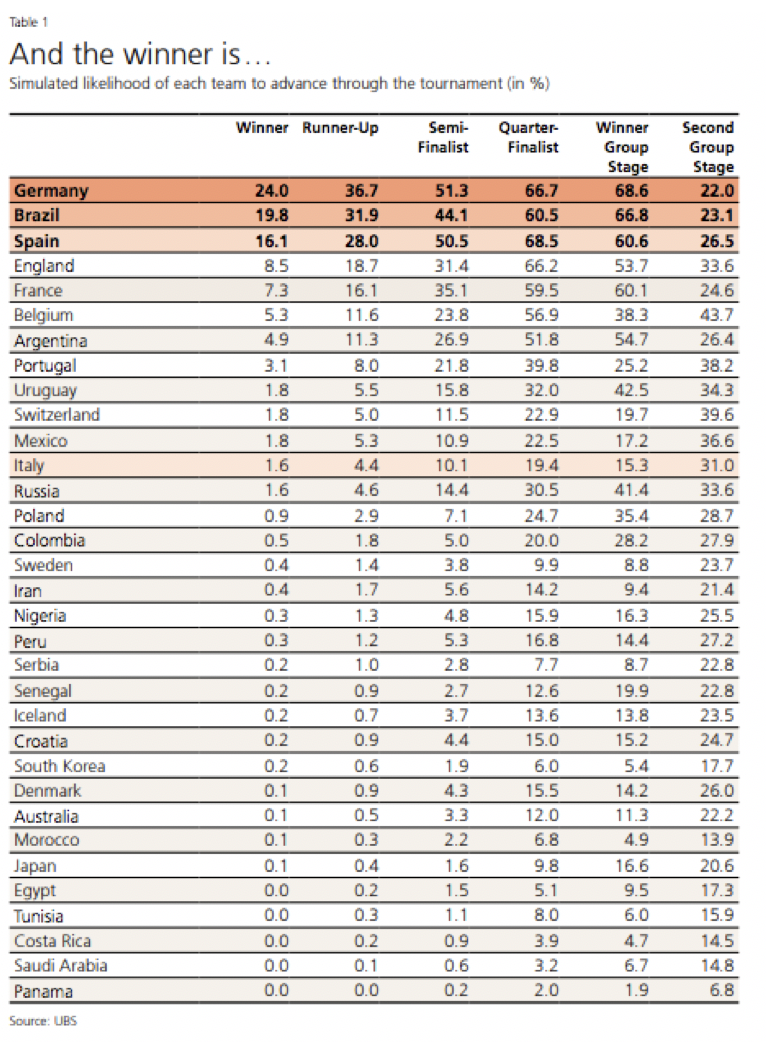What are the odds?
Jun 18th, 2018As the 2018 World Cup in Russia enters its fifth day and England are about to commence their campaign, it is interesting (if you like numbers) to a light-hearted look at how quantitative analysis has been used by investment bank, UBS, to determine the potential winner of the tournament.
‘Quantitative’ analysis refers to the systematic empirical investigation of observable phenomena via statistical, mathematical or computational techniques and is a process often employed when assessing potential investment opportunities.
The application of this type of research to investments is generally traced back to one of the economic world’s pioneers and Nobel prize winner, Harry Makowitz.
As it has done in previous years, UBS has applied the principles of quantitative analysis to attempt to establish the most likely potential winner of this year’s tournament, and the results might come as a (welcome) surprise to some.
In the course of its research, UBS has looked at how each team has performed in the past, paying particular interest to whether results have been against stronger or weaker teams, and whether these have been competitive or friendly matches.This is equivalent to looking at how an investment or asset might have performed in the past, under a range of different scenarios and/or economic conditions.
UBS has also taken into consideration patterns in successive results and whether there have been any particular stand out victories or losses.In other words, whether there has been consistency in performance, or whether there has been more ‘volatility’ in this regard.Again, the similarities with investment research are evident.
Using all of the historical data available to them, with the important caveat that, as with investments, past performance is not a guide to future results, UBS has been able to generate a statistical model to estimate the most likely outcome of each match, and using these results has mapped out all of the possible permutations of each team’s route to the final, and ultimately victory.
One of the important benefits of quantitative analysis is that because it is fundamentally based upon statistical evidence, it removes any psychological or emotive biases that might be present.
With this in mind, the results of UBSs analysis might be somewhat surprising:

As can be seen, England turn out to be the fourth most likely team in the tournament to be lifting the FIFA World Cup Trophy come mid-July.
I invite the reader to make of that what you will!